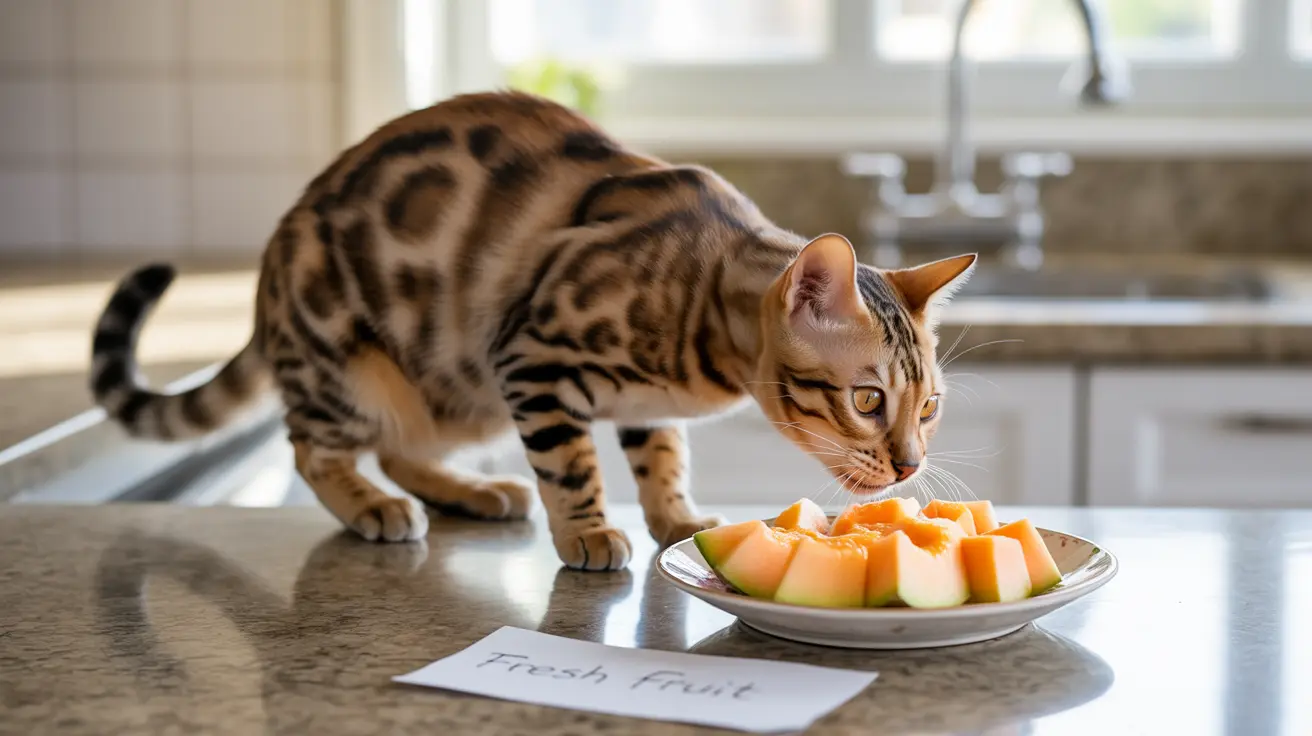Understanding Cantaloupe's Safety for Cats
Cantaloupe is non-toxic to cats and can be safely consumed in moderation. The fruit's high water content (over 90%) makes it a potentially refreshing treat, especially during warmer months. However, it's essential to remember that cantaloupe should never replace any portion of your cat's regular diet.
Nutritional Benefits of Cantaloupe for Cats
While cats don't require fruits in their diet, cantaloupe does offer some beneficial properties:
- High water content for hydration
- Dietary fiber for digestive health
- Antioxidants that may support cellular health
- Low-calorie treat option
However, it's important to note that cats can't efficiently process many of the nutrients found in cantaloupe. For example, while the fruit is rich in beta-carotene, cats cannot convert it into vitamin A, which they must obtain from animal sources.
Potential Risks and Concerns
Sugar Content
The natural sugars in cantaloupe can be problematic for cats, who aren't well-equipped to process carbohydrates. Excessive consumption may lead to:
- Digestive upset
- Weight gain
- Increased diabetes risk
- Dental issues
Physical Hazards
When offering cantaloupe to cats, certain parts must always be avoided:
- Seeds (choking hazard)
- Rind (digestive blockage risk)
- Skin (potential pesticide residue)
Safe Serving Guidelines
Proper Preparation
To safely offer cantaloupe to your cat:
- Wash the melon thoroughly
- Remove all seeds and rind
- Cut into small, bite-sized pieces
- Offer only 2-3 pieces maximum per serving
Frequency
Limit cantaloupe treats to once per week at most, and always monitor your cat for any adverse reactions after introducing this new food.
The Cantaloupe Attraction Mystery
Interestingly, some cats show a strong attraction to cantaloupe. This phenomenon is attributed to the fruit's aroma containing compounds similar to meat proteins, which naturally appeal to cats' carnivorous instincts.
Frequently Asked Questions
Can cats safely eat cantaloupe, and how often should I give it to them?
Yes, cats can safely eat cantaloupe in small amounts. Limit treats to 2-3 small pieces no more than once per week, always removing seeds and rind first.
What are the health benefits of feeding cantaloupe to my cat?
While not nutritionally necessary, cantaloupe can provide hydration, small amounts of fiber, and antioxidants. However, cats obtain most essential nutrients from their regular meat-based diet.
Are there any risks or side effects if my cat eats too much cantaloupe?
Yes, overconsumption can lead to digestive issues, diarrhea, and potential weight gain due to sugar content. Diabetic cats should avoid cantaloupe entirely.
How should I prepare cantaloupe to make it safe for my cat to eat?
Thoroughly wash the cantaloupe, remove all seeds and rind, and cut the flesh into small, bite-sized pieces. Only serve fresh, ripe cantaloupe without any additives.
Why do some cats seem attracted to the smell or taste of cantaloupe?
Cats may be attracted to cantaloupe because its aroma contains compounds similar to meat proteins. This chemical similarity triggers their natural interest in meat-based foods.
Conclusion
While cantaloupe can be a safe treat for cats when properly prepared and served in moderation, it should never become a significant part of their diet. Always prioritize your cat's primary nutritional needs through high-quality cat food, and consult with your veterinarian before introducing any new treats to their diet.






